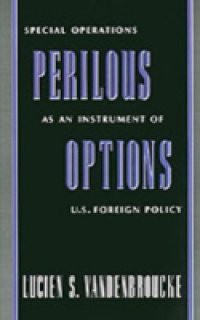In the past three decades, the United States government has used special operations repeatedly in an effort to achieve key foreign policy objectives, such as in the overthrow of Fidel Castro in Cuba and the rescuing of American hostages in Iran. Many of these secret missions carried out by highly trained commando forces have failed. In Perilous Options, Lucien Vandenbroucke examines the use and misuse of such special operations through an in-depth analysis of four operations--the Bay of Pigs invasion, the Sontay raid to rescue POWs in North Vietnam, the Mayaguez operation, and the Iran hostage rescue mission. Drawing extensively on declassified government documents, interviews with key decision makers and participants in these episodes, and other primary material, Perilous Options identifies recurrent problems in the way the United States government has prepared and executed such operations. These recurrent problems, outlined by key participants in these four special operations, include faulty intelligence, poor interagency and interservice cooperation and coordination, inadequate information and advice provided to decisionmakers, wishful thinking on the part of decisionmakers, and overcontrol of mission execution from outside the theater of operations. Vandenbroucke also explores the extent to which recent efforts to revitalize the U.S. operations capability have addressed these problems, identifying additional changes that can improve the government's ability to plan, evaluate, and execute such operations.

